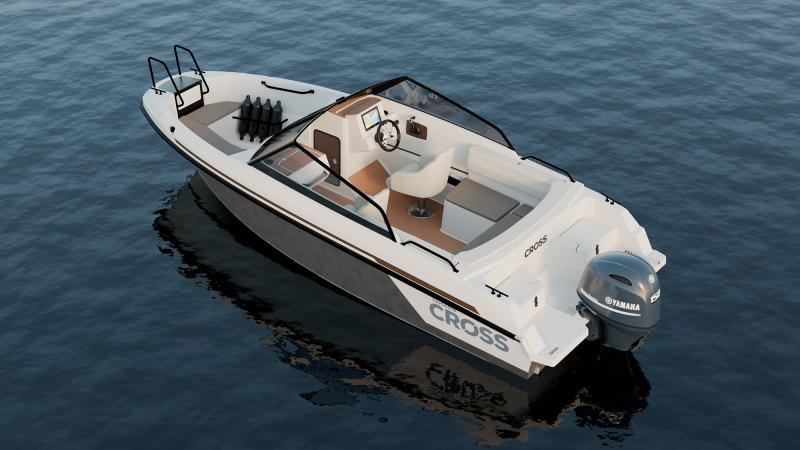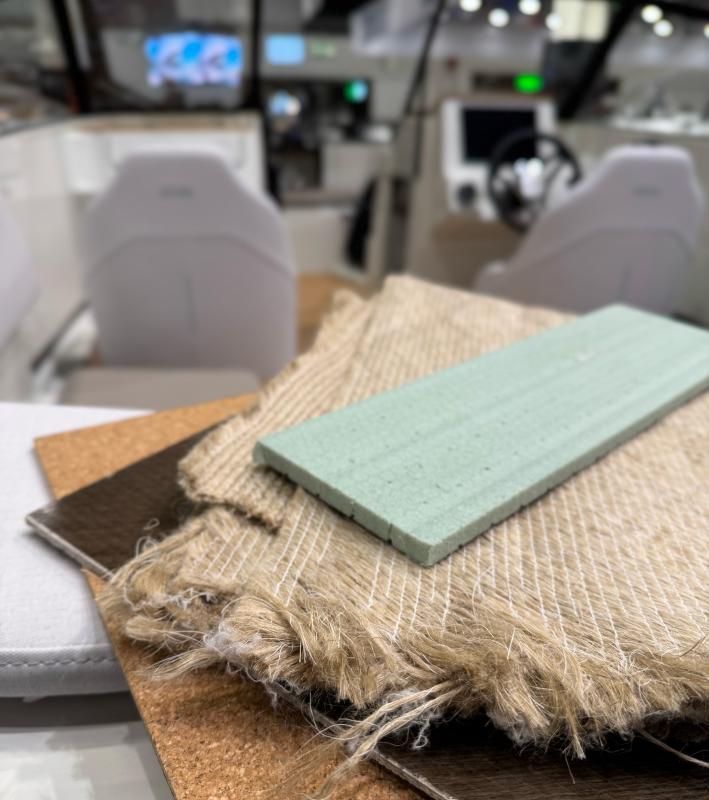
As part of a collaboration between Yamarin Cross and EKA Composite, the company responsible for lamination and assembling of the boats, tests more sustainable materials in this concept boat. The model is based on the popular Yamarin Cross 62 BR, and its structure incorporates:
- Recycled aluminum
- Flax fiber as a structural reinforcement
- Recycled PET plastic from used bottles
"Together with EKA Composite, we want to demonstrate that natural fibers and recycled materials can be used in boat manufacturing not only in an economically viable way but also to create stylish, high-quality boats," says Artturi Niittynen, Sales & Marketing Director at Cross Boats.
The deck, manufactured with 100% Flax fibers instead of traditional fiberglass, for the Yamarin Cross 62 BR Concept Boat are manufactured in Finland by EKA Composite, while the aluminum hull is produced at Buster Boats' factory. Depending on the batch, 30–70% of the aluminum plates used in the boats come from recycled material.

The gelcoat, which forms the outermost protective layer of the boat, is another area where improvements are being made. The Maxguard NP gelcoat, used in the concept boat, offers up to 50% reduction in volatile organic compound (VOC) emissions and 10–15% material savings compared to traditional gelcoats.
- The concept boat will be on display at the Helsinki International Boat Show from February 7–16 at Booth 6 d 48.
Niittynen emphasizes that researching new materials and production methods is a key part of the company's development work. Yamaha Motor Corporation, the parent company of Cross-manufacturer Inha Works Ltd, has committed to achieving carbon-neutral production by 2035, and these advancements support that goal.
"During this decade, we are working towards that target by minimizing energy consumption and transitioning to carbon-neutral and renewable energy sources," Niittynen explains.
The Inha Works and EKA Composite project will continue, with further details to be shared in spring and summer. The new materials will be tested during the upcoming boating season, and a commercial launch decision will be made based on testing and market feedback.